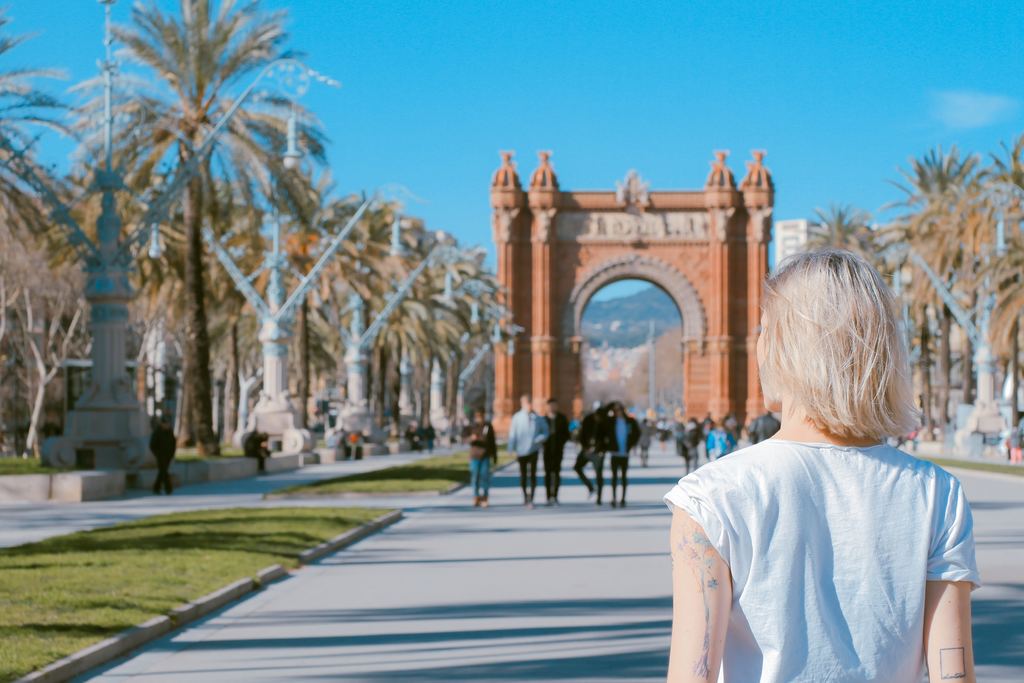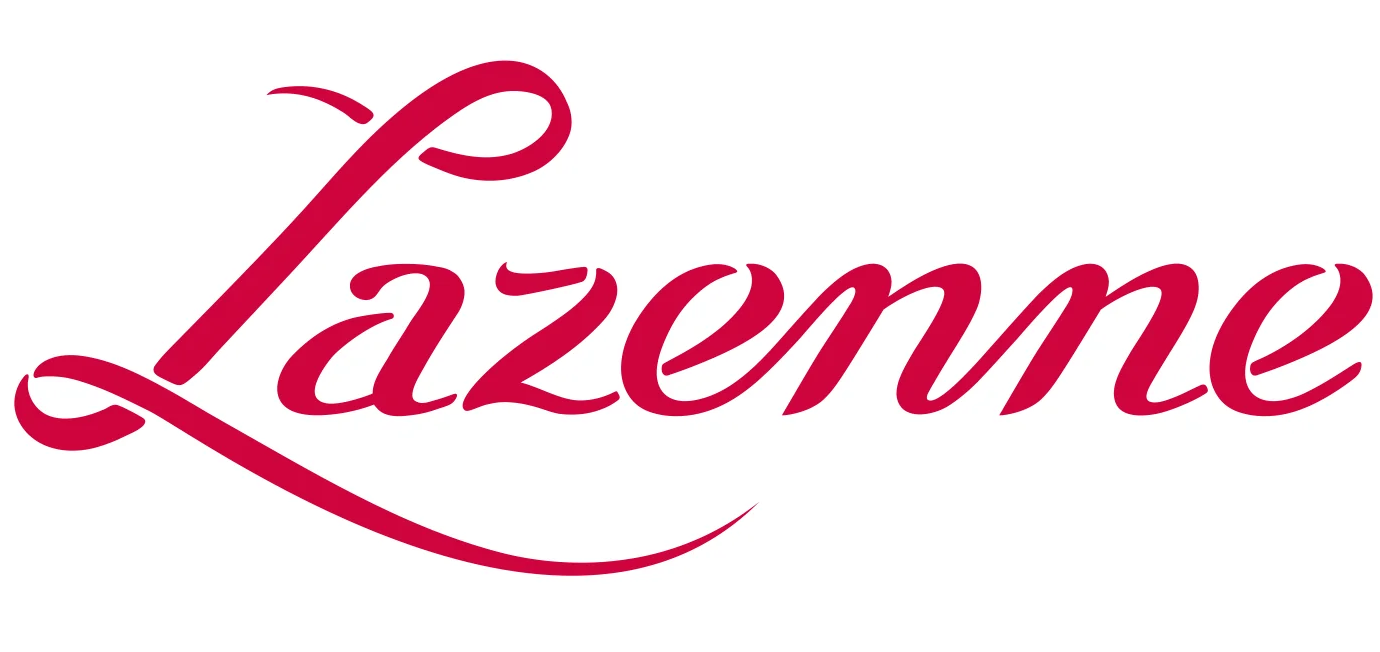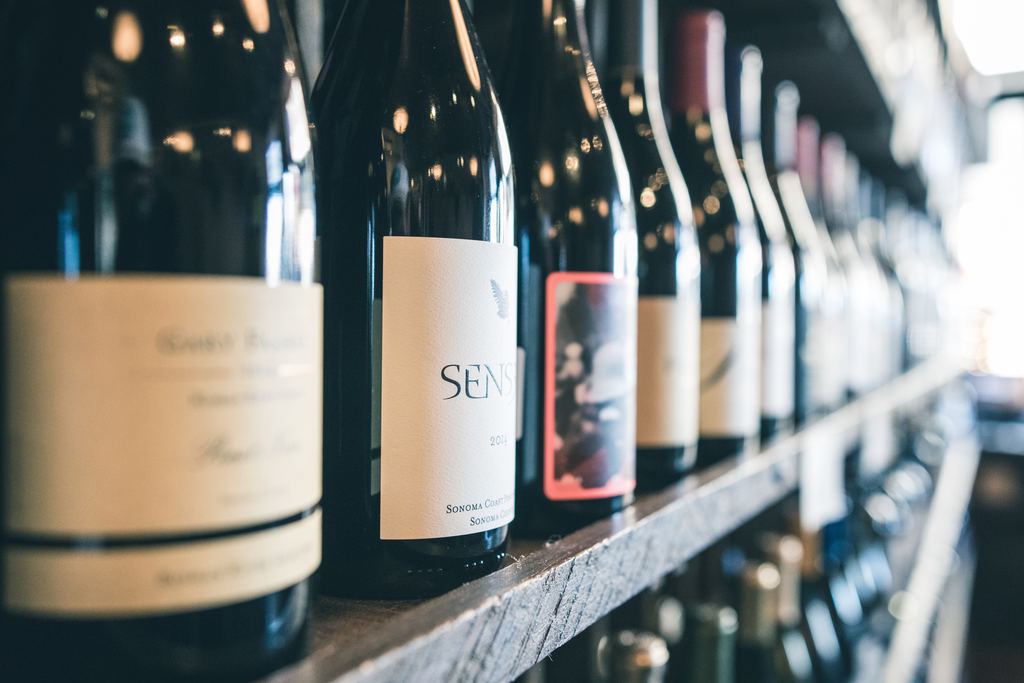
The Ultimate Guide to Drinking Catalan Wine in Barcelona
What do you imagine when you think of Barcelona? Is it Gaudi's magnificent sculptures and works of art? Perhaps it's enjoying a glass of Cava on beaches stretching away from the city, curving around the Iberian Peninsula like a silk scarf. Or is it the medieval streets full of tapas bars, restaurants and the hustle and bustle of one of Europe's most densely populated city centres? Over the years, this Mediterranean port-city has grown into one of Europe's most visited destinations and there are dozens of reasons why people flock to the capital of Catalunya. For us, you may not be surprised to learn that it's for the wine! Catalunya is home to a staggering 11 different wine regions, all of which are remarkably different from the other. You may have read our article about visiting Cava houses from Barcelona, but that's only scratching the surface of what this remarkable city has to offer.
Whether you're enjoying a glass of wine in the medieval but vibrant Born district, or pairing your tapas with a grape variety you've never heard of before in the Gotic quarter, Barcelona has you covered. Then, if you want to get out of the city for a while and enjoy the comparative quiet and freshness of the Catalan countryside, why not take a trip to one of the many wine regions within an hour of the city itself? We're going to help you narrow your trip down to some of the very best wine bars and shops in the city, as well as giving you some helpful advice on which wine regions to visit and how to get there. The only thing you still need to do is to pack your suitcase, your Lazenne Wine Check and get there!
Ever used the Lazenne Wine Check before? If not, check out out these 6 reasons why you should!

Wine Trips from Barcelona
Aside from the normal reasons to spend a day or two visiting wineries, it should be said that the Catalan countryside is absolutely stunning. Whether it's the rugged isolation of Priorat, the land-meets-sea nature of the Costa Brava or the gently rolling hills of the Penedes, it's worth getting out of the city to experience, even if a glass of wine never touches your lips! Having said that, there's no reason not to combine the two and with a plethora of regions to choose from, let's have a look at some of the more interesting wineries to visit from Barcelona:
For our ultimate Catalan winery visit, be sure to check out our article on the charming Torre del Vegeur

The Region – Alella
Alella is a small town around 20 minutes away from Barcelona, making it the closest region to the city itself. DO Alella is also one of the smallest wine regions in Spain, with a grand total of 9 Bodegas making their home here. The town itself is a charming, quiet community overlooking the Mediterranean sea, full of quaint plazas, markets and restaurants. The layers of limestone and cooling breezes from the sea mean that some really serious wine can be made here and the vast majority of everything produced is drank locally. It's certainly the sort of region for the adventurous wine lover, as you're unlikely to find many of the wines made here elsewhere!
The Winery – Alta Alella
Of the 9 wineries in the region, Alta Alella is without a doubt the star of the show. Alella has traditionally been known for producing a small amount of Xarel.lo, known locally as 'Pansa Blanca', Cava and some delicious, rustic red wines. However, Alta Alella takes it to a whole new level with an ambitious project to produce a wide portfolio of delicious wines, often using international grape varieties. Not only that but the winery is actually the closest to Barcelona making it something of an 'urban vineyard', with a stunning natural valley leading down to the sea. Alta Alella are happy to accept visitors and have a well organised enotourism project, so whether you want to arrive by car, foot or even helicopter (yes, really!) there's something for everyone.
The Wine - Dolç Mataro
Whilst there's a big portfolio to choose one, make sure you buy a bottle or two of Dolç Mataro, Alta Alella's iconic sweet wine. Mataro is a town a little further north than Alella and gives its name to the powerful, dark grape used to make this wine, although confusingly known as 'Monastrell' in most of Spain and 'Mourvedre' in France. The unusual thing about this wine is the incredibly long time it spends macerating in contact with the grape skins; 6 months! This gives the wine an incredibly vinous character and by that I mean, it behaves more like a red wine than a sweet wine. The sugar is balanced wonderfully against this rugged, tannic structure and it makes for a truly memorable experience (And some very purple teeth!)
For more information and to contact Alta Alella to organise a visit, get in touch through their website

The Region – Penedes
Arguably the most important wine region in Catalunya and situated only a short drive from the city of Barcelona, Penedes is home to a variety of different wines, styles and also around 90% of all Cava produced in the country! The best thing about it? It's absolutely beautiful, with a mixture of different climates and little hills, all climbing away from the Mediterranean sea. As you climb higher, the fresher and more delicate the styles of wine become and the grape varieties change depending on the micro-climate of that particular level. Red grapes are planted in Baix Penedes, to benefit from the warmer climates, whilst the finest white grapes are planted at the maximum altitude possible, to help them retain their freshness.
The Winery – Can Rafols dels Caus
Can Rafols dels Caus is one of the most remarkable estates in DO Penedes, built around an old farm house, the foundations of which date back to the occupation of the Romans, over 2000 years ago! Over the last 40 years, Carlos Esteva has poured his time and money into the estate, with a brand new winery literally hewn into the rocks around them, and their extensive vineyards are all taken of using organic and biodynamic principles. Where financial means meet a philosophy based around quality and transparency, the wine benefits!
The Wine – Pairal
Xarel.lo continues to make a strong case for being the white grape to pay attention to in Catalunya, and this delicious expression just reinforces the argument. Made from the oldest vines on the estate, between 60 and 70 years old, and aged in chestnut oak for 4 months and then the mandatory 2 years in bottle, this is a special wine. Still quite lightly coloured but full of evolving fruit aromas, light oak influences and a lovely nuttiness. The use of chestnut is an old tradition in the region, something that Carlos Esteva was keen to recover and experiment with, and the results of a lighter touch are quite remarkable. Don't leave without a bottle or 6!
For more information and to contact Can Rafols dels Caus, get in touch through their website

The Region – Priorat
Priorat is perhaps Spains most traditional and yet also, modern and exciting wine region in the entire country. This may sound like a contradiction but when you taste some of the village wines, where styles have barely changed over the last few hundred years, in comparison with the fresh, precise wines of the modern producers, you'll see what I mean! Located to the south of Barcelona, this is a mountainous region, home to the most famous red wines in the whole of Catalunya. Getting there is tricky but accomodation is affordable and well placed around the region, although it's recommended to supply your own transport as getting around by foot is quite arduous!
The Winery – Ripoll Sans
Ripoll Sans is a tiny producer located just outside the heartland of wine in Gratallops. Ran by Marc Ripoll Sans as a one-man band, they make 15-20,000 bottles a year; a small quantity even by Priorat's standards. A staunch supporter of the traditional, indigenous grapes of Priorat, Marc produces a small but wonderful selection of wines, including the only 100% Escanyavella white wine in the world.
The Wine – 5 Partides
The jewel in the crown of Ripoll Sans isn't the small plot of Escanyavella, nor the excellent Garnacha that goes into his younger wines, but the concentration of old vine Carignan located on different plots around Gratallops. The very best of this, coming from vines that are over 100 years old, goes into produced 5 Partides, one of the best wines produced in the entire region. Smoky, dark, intense and just so... Priorat! This is a remarkable wine but only made in tiny productions and the best prices are directly from the cellar door, which let's be honest is just another excuse to pay Marc a visit!
For more information and to contact Ripoll Sans, get in touch through the contact information here

Wine Bars and Shops in Barcelona
Barcelona is alive with the sound of drinking! Barcelona, like many Spanish cities, is a vibrant, energetic place where food and drink are concerned. The city is home to some wonderful family ran wine shops, tasting rooms and of course, huge amounts of tapas that need washing down with something delicious and refreshing. Whether you want to spend your evenings washing away the cares of the world or spend an afternoon picking out some special bottles to take home with you, these following establishments are an absolute must-visit:
Monvinic
Carrer Diputacio, 249
Monvinic isn't just the temple of wine in Barcelona, it's a world famous establishment for wine-lovers, boasting a huge cellar (over 6,000 references in total) and over 50 wines by the glass, which rotate every single day. Sleek and polished, this is the single most impressive reference point for wine in Barcelona, and, as Jancis Robinson MW states: “Just been to Monvínic in Barcelona - the temple to connoisseurship -. Any wine lover within range should spend much of their lives there.” As it happens, they do! Whilst the evening menu is impressive, we recommend going for the Menu del Dia option at lunch and spending the extra money on a special bottle; you won't regret it! Monvinic
Eldiset
Carrer Antic de Sant Joan, 3
Eldiset is a fantastic, energetic wine bar, specialising in Catalan wines and delicious tostadas; warm open sandwiches. Ran by head Sommelier Alejandro Sanchez and his team of sommeliers, this is the place to be if you want to drink a variety of Catalan wine. From a selection of Cava by the glass to robust, powerful reds, zesty whites and even a touch of the experimental, this bar has everything you might want to try, and that's before you even consider checking the bottle list! Make sure you reserve a table if you'd like to come for dinner, as it's understandably popular. Eldiset
Bodega Maestrazgo
Carrer San Pere mes Baix, 90
Bodega Maestrazgo is one of Barcelona's hidden gems. Founded in 1952, it's been part of the Molina family ever since, today expertly ran by Jose Nicolas Molina. Wandering in and seeing the locals filling up their plastic bottles with 'vino granel' (bulk wine) gives you an idea of the sort of stories this shop has to tell from the decades past, then it opens up in the back with a plethora of top quality Spanish wine adorning the wall, whilst locals enjoy a bottle or two around the barrels dotted around the Bodega. Whether you're looking for a glass of something affordable and delicious or a special bottle from a brand new producer on the Spanish wine scene, this is the shop for you! Better yet, they serve wine and excellent cold tapas all day, so you can try before you buy! Bodega Maestrazgo
Vila Viniteca
Carrer dels Agullers, 7
Vila Viniteca is Barcelona's 'Aladdins Cave' of wine. The biggest distributor in Catalunya, Vila Viniteca bases their flagship store close to Santa Maria del Mar in the Born district, and what a wine shop it is! Ceiling to floor, this is packed with quality wine from Spain and the rest of the world. Not only that but they also organise tastings and events, as well as having a sister shop across the street, specialising in top quality Spanish and Catalan food. No self-respecting wine lover would visit Barcelona without paying a visit here. Here's a tip for you: ask to visit their storeroom in the back of the shop. That's where the real treasures are to be found! Vila Viniteca

Top 10 Barcelona Travel Tips
Two Languages – Barcelona is the capital city of Catalunya, and whilst everyone here speaks Spanish, the dominant language is Catalan, a completely separate language in its own right. Don't be concerned, this is still a good place to practice your Spanish, but don't be surprised if you occasionally receive a response and wonder why you don't understand it!
Forget Flamenco – Barcelona isn't much like the rest of Spain; it very much marches to the beat of its own drum. Bullfighting is outlawed here and while there are Flamenco shows, it's really not what you want to be spending your time doing; save that for Grenada and Seville! Instead, use that time to wander the medieval streets, eat some Calcots if you're here during the winter months and if at all possible, watch a Castell being formed!
Reservations – Barcelona is one of Europe's most densely populated cities and people like to eat and drink here. As a result, expect that the vast majority of the best restaurants have queues lining up outside the door, and often don't take walk-in customers during the busiest months. If there's a restaurant you really want to go to, make sure to call and make a reservation in advance. Don't be nervous, most of the hospitality industry speaks a good level of English!
Eat Later – This is true for many Mediterranean cultures and Barcelona is no different. Whilst going out to eat at 8pm may guarantee you a better table, you'll miss the energy and fun that eating with the locals brings. Don't even think about going out for dinner before 9pm and, if you can, make those reservations for 9:30-10pm and grab a snack inbetween!
Public Transportation – The public transportation of Barcelona is a wonderful service and well worth using during your time in the city. The metro in particular is excellent value, particularly if you buy a T-10 ticket which costs 10 euros for 10 trips, which can be shared between multiple users.
Pick-Pockets – On a slightly less fun note, do beware of petty crime in the city, which has risen over recent years. Busy areas are the worst affected by it, in particular the central Metro stops of the city, Las Ramblas, Plaza Catalunya, La Sagrada Familia and Passeig de Gracia. As long as you keep a close eye on your things, you should be ok but do keep an eye out!
Beach Days – Whilst Barcelona's beach is on the front of every postcard you see from the city, do yourself a favour and head north. The beaches stretching away from Barcelona are quieter, cleaner and absolutely worth a short train journey. From the Arc d'Triumf train station, buy a 4 zone ticket heading north and get off when you see the water glistening like glass; that's where you want to be!
Las Ramblas – The busiest, most iconic street in Barcelona is not where you want to be spending your precious time in Barcelona. Whilst there's an undeniable energy to the street, the chain stores and gift shops lining it make for a well laid set of tourist traps, when you could be spending your time exploring the streets of Poble Sec, Gracia, Born and many other unique neighbours around the city. Be adventurous!
Wander at Will – It's tempting to plan a packed itinerary that covers all the major sites, the hidden gems and all the restaurants you've always long to visit, but make sure you leave at least an afternoon free to get lost in the city; we mean that, literally lost. Wander into the old town and let your feet take you where they will. Barcelona's Gotic quarter is a veritable Snakes and Ladders style arrangement, with surprises waiting around every corner. Then, when you get hungry, follow your nose!
Skip the Queue – The major attractions in Barcelona are understandably popular. Whether it's the majesty of La Sagrada Familia, the beauty of Park Guell or even the insight into history of the city at various museums, it can mean a lot of standing in line. Almost every monument and museum sells tickets online and it'll massively reduce your chances of missing out; tickets really do sell out! If you're visiting in the busier, summer months, book well in advance!

Conclusion
Just looking at all the things to see and do in Barcelona, it's making us want to go back and spend more time there already! Whether you're here for a general holiday or you've planned a wine specific trip, we hope this guide is helpful and that you enjoy your stay. Don't forget that if you decide to bring back memories of your trip, we can get a Lazenne Wine Check to you within 48 hours, so you don't have to miss out on the fun. Until then, grab a glass of delicious Catalan wine and Salut!
Further reading on Spanish Wine:









Deixar comentário
Este site é protegido por hCaptcha e a Política de privacidade e os Termos de serviço do hCaptcha se aplicam.